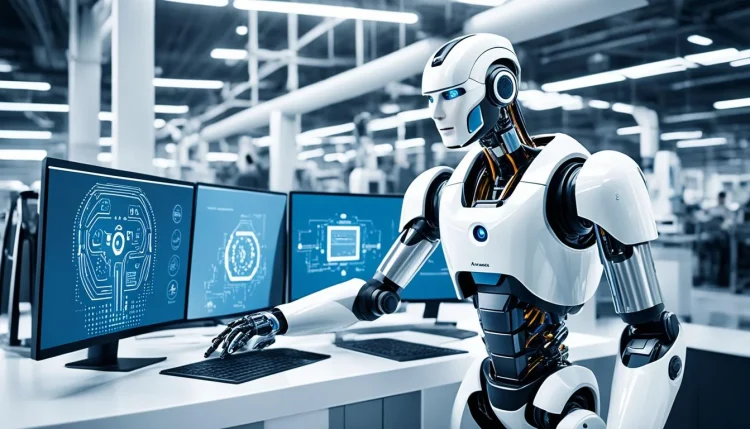Artificial Intelligence (AI) and Machine Learning (ML) are revolutionizing industries by enabling systems to learn from data, make decisions, and improve over time without explicit programming From healthcare and finance to retail and urban management, AI and ML are driving unprecedented levels of efficiency, accuracy, and innovation
One critical area where AI intersects with technology is embedded software development In embedded systems, AI algorithms can optimize processes, automate tasks, and provide real-time insights, significantly enhancing the performance of devices and systems.
For instance, AI-driven embedded software is increasingly used in predictive maintenance applications, where sensors and data analytics work together to forecast equipment failures, allowing for timely interventions and reduced operational downtime
Case Studies in AI and ML
Several case studies highlight the transformative impact of AI and ML across different sectors:
1 Airbus: Predictive Maintenance in Aviation
Airbus implemented AI algorithms for predictive maintenance, analyzing data from aircraft sensors to predict when maintenance is needed This approach reduces costs, enhances safety, and minimizes unnecessary inspections and downtime, showcasing the critical role of AI in embedded software development for complex systems like aircraft7
2 American Express: Fraud Detection
In the financial sector, American Express uses machine learning models to detect fraudulent transactions in real-time These models analyze transaction patterns, identify unusual activities, and provide immediate alerts, significantly reducing financial losses and enhancing customer trust7
3 Alibaba’s City Brain: Urban Traffic Management
Alibaba’s City Brain project uses AI to manage urban traffic by analyzing data from sensors and cameras This system optimizes traffic light timings and provides insights for better urban planning, effectively reducing congestion and improving public transportation in cities7
4 JP Morgan: Legal Document Analysis
JP Morgan has revolutionized legal document analysis with its AI-powered tool, COIN (Contract Intelligence), which uses Natural Language Processing (NLP) to extract relevant information from contracts, cutting down review time and reducing errors This demonstrates how AI can enhance operational efficiency in data-heavy environments7
Insights from Industry Leaders
According to McKinsey & Company, AI’s potential to drive business value hinges on strategic implementation, particularly in sectors that rely on extensive data analysis Companies that integrate AI into their operations can achieve significant gains, but they must also address challenges like ethical considerations, data management, and the need for organizational change to fully harness AI’s capabilities8
AI and machine learning are not just technological trends but foundational shifts that are reshaping how industries operate As businesses continue to adopt these technologies, they are finding new ways to innovate, optimize, and stay competitive in an increasingly digital world
The Future of AI and Machine Learning
The future of AI and Machine Learning lies in the continuous evolution of algorithms, better data integration, and the seamless fusion of AI with other technologies, including embedded software development.
According to McKinsey’s QuantumBlack, AI-driven enterprises are focusing on developing robust data strategies and integrating AI into their core processes to capture more value. Organizations that can successfully harness AI stand to benefit from increased productivity, enhanced decision-making, and new opportunities for innovation(
Furthermore, the strategic use of AI and Machine Learning is expected to redefine industries like healthcare, manufacturing, and transportation. AI-driven embedded systems, for example, are already playing a pivotal role in the development of autonomous vehicles, smart factories, and IoT devices that can respond intelligently to their environment. The integration of AI into these areas not only enhances functionality but also provides real-time analytics and predictive capabilities that were previously unattainable.
Challenges and Considerations
Despite its transformative potential, implementing AI and Machine Learning comes with challenges. Issues such as data privacy, ethical concerns, and the need for skilled talent are significant barriers that organizations must address. Moreover, embedding AI into software development requires careful consideration of system design, real-time processing capabilities, and continuous updates to keep pace with evolving algorithms.
For companies looking to adopt AI and ML, a strategic approach that includes investing in data infrastructure, upskilling employees, and addressing ethical implications is crucial. Leaders must not only focus on technological adoption but also on fostering an organizational culture that embraces AI-driven decision-making and innovation.
Conclusion
AI and Machine Learning are not just enhancing existing technologies; they are paving the way for new paradigms in how industries operate, optimize, and innovate. From predictive maintenance in aviation to real-time fraud detection in finance, AI’s role in embedded software development and other areas is set to expand, driving efficiencies and creating value across the board. As these technologies continue to evolve, the organizations that can effectively integrate AI into their processes will be best positioned to lead in the future digital landscape.










